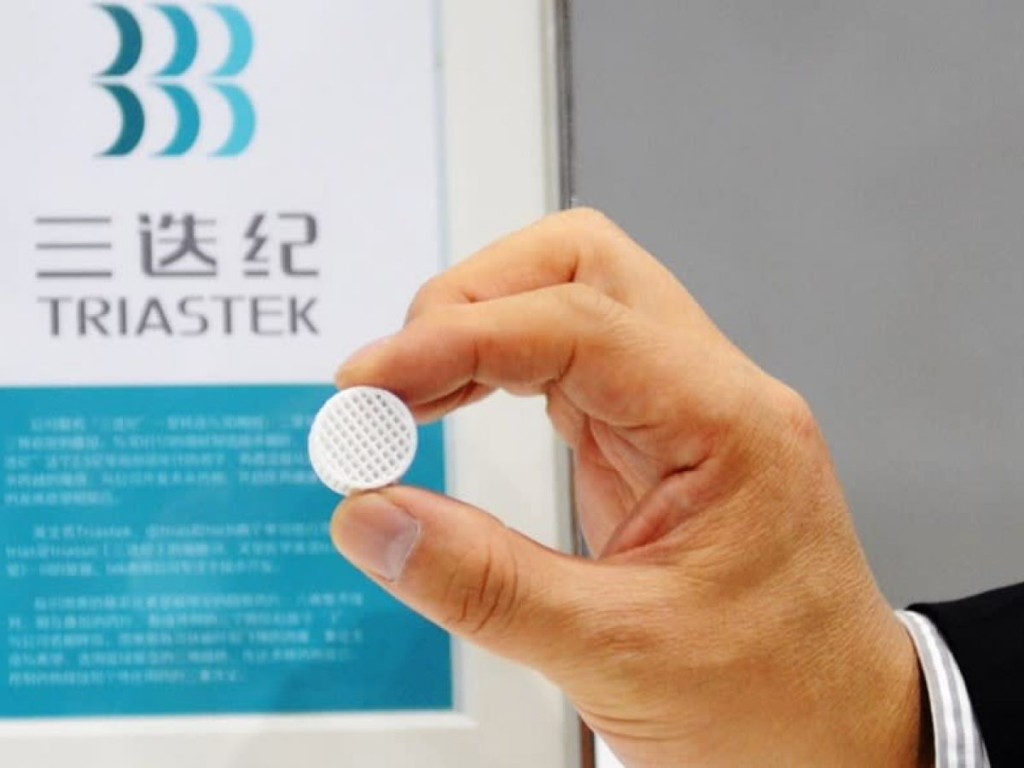
The firm reported that Chinese pharmaceuticals developer Triastek has completed the FIH study of T21, a UC drug developed using additive manufacturing (AM). Triastek prints T21 with the same Melt Extrusion Deposition (MED) technology it uses for all of its other products.
To now, Triastek has focused mostly on developing pharmaceuticals with geometries only achievable by AM, principally to control the location and pace of release of a medication’s active components in the patient’s system following ingestion. As it is challenging for the oral drugs now available to target the colon precisely, T21’s characteristics might lead to a breakthrough for those suffering from UC.
Triastek has demonstrated, using imaging data from the FIH research, that the delivery and release of T21 tablets occurs immediately in the colon after ingestion. This might be a huge boost for Triastek’s attempts to have an NDA for T21 approved, and it would be great news for UC sufferers as well.

Press Release of Triastek
Professor Xiaoling Li, Triastek’s co-founder and chief scientific officer, said in a press release that the company’s recently completed FIH study for T21 “verifies the precise colon delivery capability of the MED process, and the platform is poised to become the novel drug delivery system of choice for colon targeted new product with either local efficacy or systemic absorption.” We look forward to continuing to demonstrate how Triastek’s 3D printing technologies can give technological solutions to pharmaceutical firms for efficient product development of optimized drug administration, and hence the capacity to supply patients with more therapeutically relevant medications.
According to what I was informed by Dr. Senping Cheng, the Chief Executive Officer of Triastek, “…[T21 can mitigate] potential side effects from systemic exposure,” which would occur if the drug was released in other parts of the body. Again, this indicates that utilising AM for pharmaceuticals might not only lead to all of the possible supply chain advantages that have motivated firms in practically every sector to start researching AM, but it could also lead to higher quality goods right now for the pharmaceutical industry specifically. This is because AM could lead to better quality products by reducing the risk of contamination and ensuring that only the purest ingredients are used.
It goes without saying that this is far simpler to state than it is to put into practise, given that the regulatory procedure for drugs takes place on a timeline that makes the aerospace industry appear to be a piece of cake. On the other hand, supply constraints in the pharmaceutical business have proven more difficult to resolve than practically any other industry over the course of the past several years; thus, this might become a catalyst for an increased drive to adopt innovative production processes like AM. This is not to imply that pharmaceutical laws should be lifted; rather, it is to recommend that private businesses and state authorities should collaborate to prioritise the use of AM and other automation technologies in situations where favourable results have been demonstrated.
Along these lines, it is noteworthy to note that in 2022, the multinational pharmaceutical company Eli Lilly made the announcement that it will work with Triastek to investigate the possibility of developing new applications for the MED platform. This is significant in light of the fact that the FDA turned down Eli Lilly’s NDA for a novel treatment for UC called mirikuzmab in April of 2023. Notably, the rationale for the rejection was connected to issues the FDA had with Eli Lilly’s manufacturing facilities in Branchburg, New Jersey, about poor quality control. These worries were related to the fact that Eli Lilly had submitted an application for a new drug.
About Manufactur3D Magazine: Manufactur3D is an online magazine on 3D Printing. Visit our Global News page for more updates on Global 3D Printing News. To stay up-to-date about the latest happenings in the 3D printing world, like us on Facebook or follow us on LinkedIn and Twitter.



